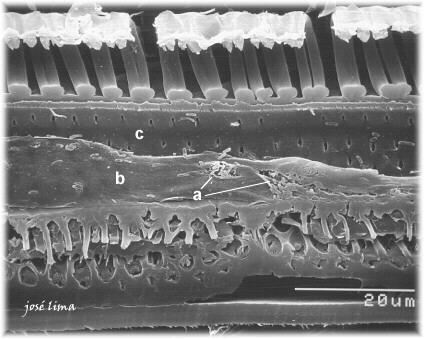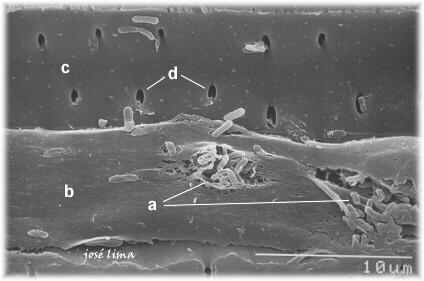
Xylella fastidiosa bacteria (a) are typically observed embedded in a
blanket or involved by a substance (b) of unknown nature inside xylem
vessels of citrus or coffee . It is not known whether the substance is produced by the
bacteria as a natural process in the colonization of the vessel, or it is produced by
the vessel as a defense against colonization, in an attempt to isolate the invaders
inside the affected vessel (c). The appearance is typically of a cake roll
or pie where the bacteria are the filling.
Xylem vessels possess pores or pits (d). The pits are frequently larger than
bacteria in dimension. However, bacteria are not allowed through xylem pits because of
an existing membrane between pits of adjacent xylem vessels with a structure similar to
cell membranes which, when intact, are only permeable to small molecules. There is no
evidence yet of sufficient production and/or secretion of specific cell membrane
digestion enzymes by X. fastidiosa. Therefore, lateral translocation of the
bacteria between adjacent vessels seems rare. Typically, vessels completely taken by
bacteria appear adjacent to perfectly clean vessels under electronic microscope
observation. Longitudinal sections above, 2,100X, and below, 5,400X.
 5400X
5400X